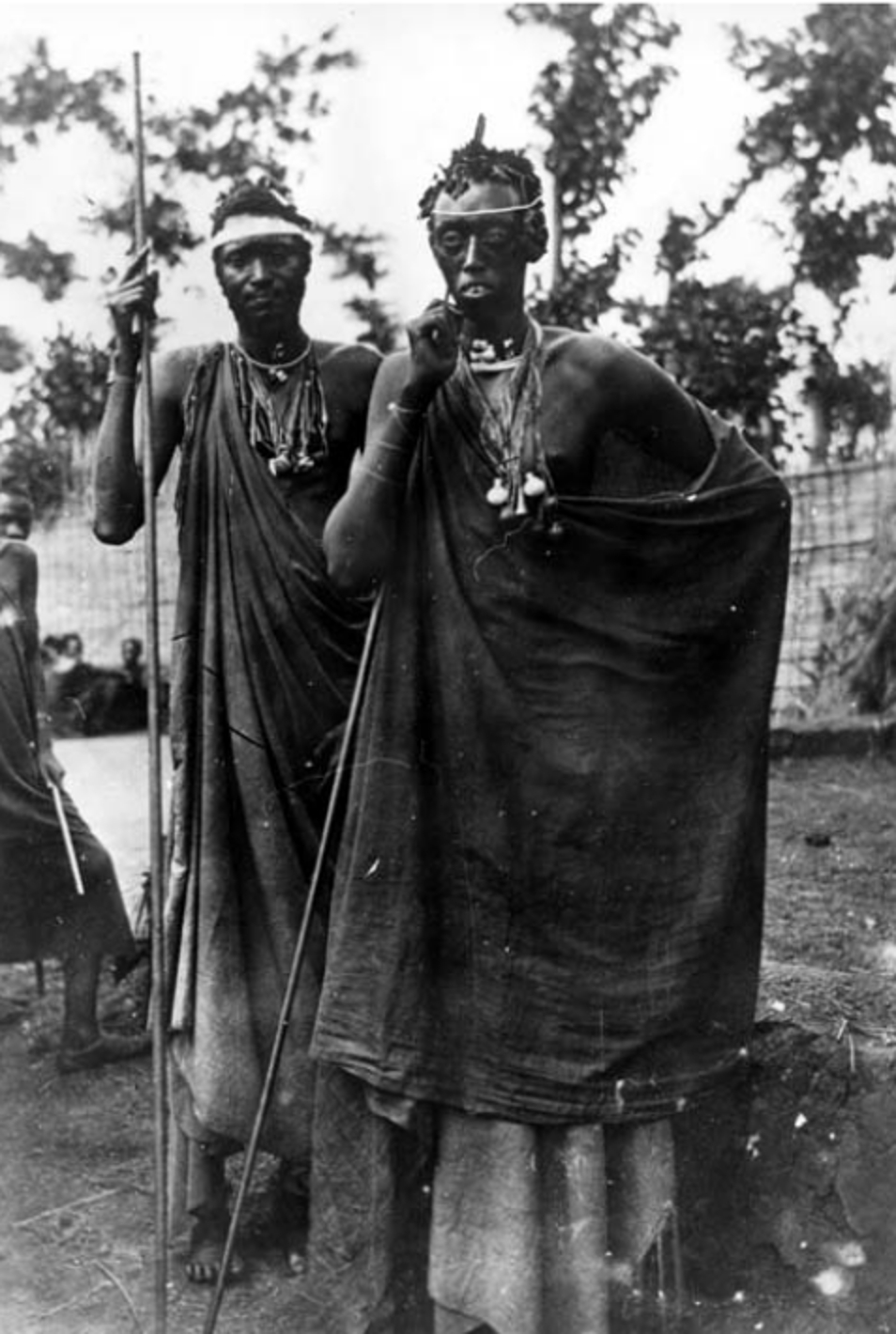Mutatembwa of Kiziba (1857-1903)
 |
| Mutatembwa of Kiziba (in the middle), photo by Rehse (published in 1910) |
Mutatembwa
was an old man, when the Germans arrived at Lake Victoria in 1890. He
was the bakama, or king/chief of Kiziba. The country was on the
border to the British sphere of influence.
Mutatembwa
was born in 1857 as the son of Ruhangarazi of Kiziba. Before the
arrival of Germans, Mutatembwa fought a series of very successful
campaigns against his neighbors. His expansion was only stopped by
Germans. Mutatembwa was one of the few rulers at the Lake to offer a
year-long resistance against the Germans in the region. His
resistance originated rather in the course of regional power struggle
and in local intrigues over the succession to the throne than in the
German presence.
The
first ally of Germans in the region was Mukotani of Kiamtwara. Emin
Pasha (or Eduard Schnitzler) founded the first German station at
Bukoba, which was in Mukotani's kingdom, in 1890. The German presence
in his kingdom gave Mukotani a decisive advantage over his rivals in the struggle for
hegemony in the region. He persuaded Emin Pascha to attack Mutatembwa
for his alleged enmity against the Germans. This attack laid the
foundation for the future relationship between Mutatembwa and the
Germans.
The
main event of the early 1890s in the region, however, was not the
arrival of Germans, but the Bugandan civil war. The conflict had
major consequences for the regional system of alliances and
rivalries. Kiziba was in the orbit of influence of the Baganda for
most the 19th century. Mutatembwas first reaction to the
arrival of Germans was to ask the Bagandan king for help, but the
king itself fought for his survival against a coalition of
protestant Bugandans and the British IBEAC. When Mwanga lost his
throne, he went to exile to Mutatembwa. The fight for the Bugandan
throne was seen by the British, and later by many Germans too, as a
struggle for European supremacy in the region. Mwanga was portrayed a
ruthless despot, and anybody, who was allied to him, too.
Mutatembwa
chose his son Mutahangarwa as his successor. This was opposed by the
Germans on the basis of an incident in 1897, when Mutatembwa refused
to provide the German doctor Zupitza with the corpses of people, who
had died of plague. The king's advisers accused the German of
cannibalism. Mutahangarwas main rival for the succession to the
throne was a certain Reshebula, who took the affair as a chance to
get rid of Mutahangarwa. He accused Mutatembwa and his son of being an enemy of
the Germans and an ally of the Bugandan king Mwanga. For his refusal
to deliver the corpses, Zupitza punished the king by killing his
prime minister or katikiro.
Mutatembwa
finally gave in and choose not to continue his resistance. The
mistrust between both sides, however, remained for the rest of his
regency.
Mutatembwa
died in 1903. Mutahangarwa followed him as the new king.


Comments
Post a Comment